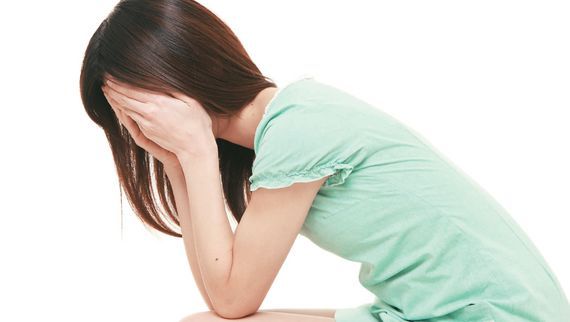 Due to the imbalance of estrogen and progesterone levels two weeks prior to period, women suffer from premenstrual syndrome, which entails more than 150 symptoms ranging from mood swing, uncontrollable food cravings, and unreasonable irritation to edema, headache, and depression.
Due to the imbalance of estrogen and progesterone levels two weeks prior to period, women suffer from premenstrual syndrome, which entails more than 150 symptoms ranging from mood swing, uncontrollable food cravings, and unreasonable irritation to edema, headache, and depression.
Symptoms of PMS occur differently by person and some luckiest ones are not struck by have any symptoms. However, if you are one of the 85 percent of women who have at least one symptom of PMS during the monthly cycle, don’t just suffer through the pain but consider trying the following to relieve the symptoms – recent study has found that stress from PMS symptoms worsens the pain the following cycle, so it is time to fight if you haven’t already!
Agnus castus, Red clover, and St. John’s Wort are widely known to relieve PMS symptoms. Among the three, only Agnus castus is proven to have actual impact against the symptoms. According to a research, daily consumption of 20mg of Agnus castus relieved more than 50% of PMS symptoms among 83% of participants. Effect was greater when the intake period was longer, and symptoms reappeared when participants stopped taking the dose.
Birth control pills are also known to relieve PMS symptoms. However, one has to keep the side effects in mind – among various side effects including weight gain/loss, sore breast, mood changes, and headaches, thrombosis is the most severe that can possibly threaten your life.
Exercising more and eating healthier can also relieve pains from PMS. Consuming less foods with food additive, white sugar, white rice, and processed meats can help reducing the pain.
Regarding the relationship between one’s dietary habits and PMS, there have been studies proving that certain nutrients help reducing the effects of symptoms. As adrenal gland is one of the organs that mainly produce sex hormones, consuming nutrients that intensifies adrenal gland’s function may help against PMS. Consumption of 50mg of Vitamin B6, 250mg of Magnesium, 1g of Calcium, and 400IU of Vitamin D showed meaningful effects, but since nutritional supplements are not medicines, one should not expect dramatic changes.
As same as for many other diseases and symptoms, exercises can be the key, especially when your PMS symptoms occur as headaches or muscle pains. Exercises also improve imbalance of sex hormones by improving adrenal gland’s functions, which again, helps against PMS. Doing intermediate to intensive level of aerobic exercises three times or more per week is good enough.
Original document available from www.koreadaily.com/news/read.asp?page=2&branch=NEWS&source=&category=lifenleisure.health&art_id=4133825
Translated by Heewon Kim

![How do you write a Tony-winning show? Go through a breakup first. Hue Park, writer of the musical "Maybe Happy Ending" [NHN LINK]](https://www.koreadailyus.com/wp-content/uploads/2025/06/0625-MaybeHappy-218x150.jpg)

![‘World of Street Woman Fighter’ brings global dance crews to center stage From left: Mnet's ″World of Street Woman Fighter″ director Choi Jung-nam, Kinjaz co-founder Mike Song, ZeroBaseOne member Sung Han-bin and singer and producer Park Jin-young pose for a photo during a press conference held in southern Seoul on May 27, ahead of the premiere of the dance competition show later in the day. [CJ ENM]](https://www.koreadailyus.com/wp-content/uploads/2025/05/0527-dancingcompetition-218x150.jpg)



